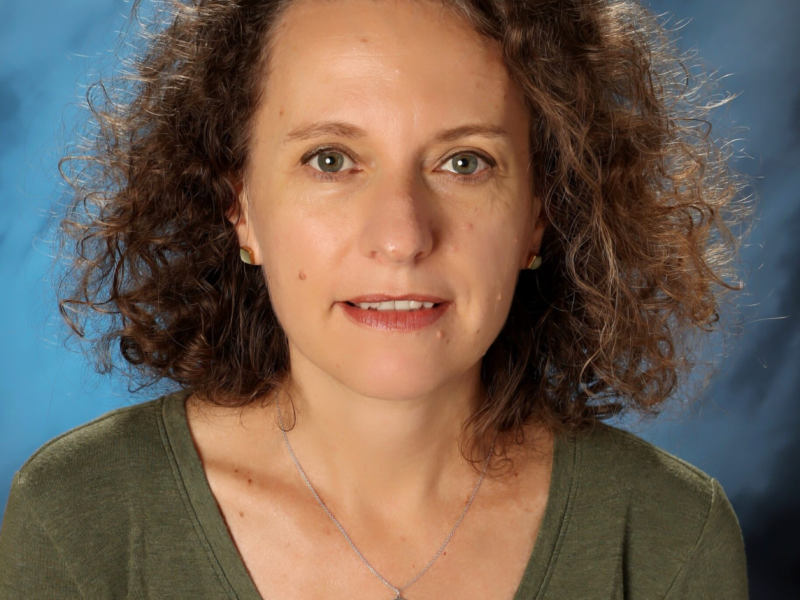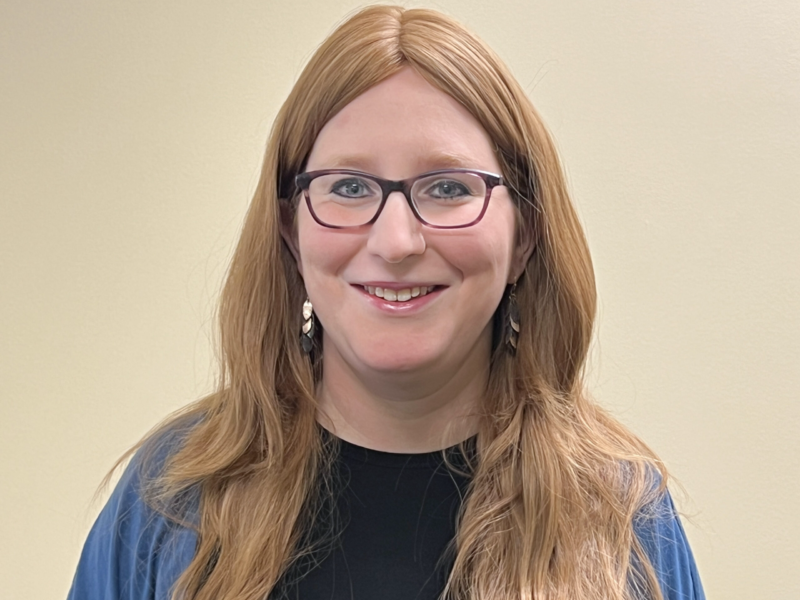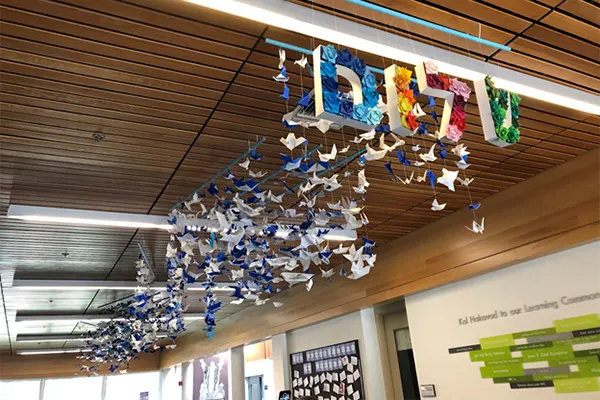Portland is on the map for gay couples in Israel who turn to surrogacy to fulfill their desire to become parents in a society where parenthood is the ultimate goal.
That sentiment, backed up by a recent article published in the Journal of Family Psychology, was voiced by two gay couples who came to Portland in October for the birth of their children to surrogate mothers. The rabbi who helped them through the process echoed that sentiment.
“To become a family and a parent is the ultimate goal for everyone,” says one couple, who asked that neither their first nor last names be used.
The second couple agrees. “In Israel, it’s mandatory – if you are Jewish, you have to have kids. Being gay is no excuse for not having kids,” says Gal. His partner Mickey adds, “A Jewish mom is not about to let her gay son stay without kids anymore.”
Congregation Beth Israel Rabbi Michael Cahana, who has now helped three couples navigate Israel’s religious requirements involved in surrogacy, agrees that Israel is a “child-centered culture.” As an example, he says that when he and his wife had triplets, American friends would lament how difficult that must be, yet when the new family was in Israel, people would say, “You are so lucky.”
“It was so heartwarming,” says Cahana of Israelis’ view of children as a blessing.
The JFP article published online Aug. 13, 2012, cites numerous studies on the importance of parenthood in Israel. The article by Geva Shenkman references 2011 and 2007 studies to conclude that gay men identify with “the dominant cultural norms that strongly encourage marriage and children. … These familistic values are magnified by the fact that being a parent is the primary path toward acceptance in Israeli society.”
Yet there is a gap between the cultural reality and Orthodox-based Israeli law.
Though Israeli law is very progressive in some areas, such as legal rights for cohabitating same-sex couples and paid parental leave for fathers (gay or straight), domestic adoption and surrogacy are largely closed to the gay community, according to both couples.
In this nation largely founded by Holocaust survivors, where Jewish tradition emphasizes the importance of family, the drive to be parents is complicated for gays. One couple notes, “Israel is a country that relies on biblical law,” and it has a pervasive military culture in which “manhood is macho. That does not leave much room for gay men to become parents.”
Many gay couples have turned to surrogates in either the United States or India to resolve the conflict between wanting to be parents and the stumbling blocks in Israel that hinder that desire. Portland has become a popular destination through word of mouth among the gay community centered in Tel Aviv. Though surrogacy is cheaper in India, there are restrictions – such as an inability to know the surrogate and a requirement that only one man can be a biological parent even in the case of implanted twins. Both of the couples who came to Oregon in October had twins, with each man the biological father of one twin. In Israel, gay men are legally able to adopt their partners’ biological children.
“In India you can’t have two fathers,” says Gal. “That was very important to us,” adds Mickey, noting that is why they chose the United States.
And Portland was at the top of their list for several other reasons, including the success gay friends had had here.
“Portland is on the map – at least for Israeli gay Jews,” says one. “The social climate is very liberal in Portland. The gay community and diversity are accepted here.”
He adds, “Portland has a good (surrogacy) agency and a very good (fertility) clinic – among the top five in the U.S. with high rates of success; and the (egg) donors and surrogates are here.”
Oregon Reproductive Medicine and the Northwest Surrogacy Center have worked with numerous Israelis over the past few years.
A gay couple who now have a 4-year-old born to a surrogate in Portland started an agency in Israel and work with the Portland agency.
“We’ve worked with many, many families from Israel,” says John Chally, who in 1994 cofounded the Northwest Surrogacy Center with his wife Sandy to help prospective parents navigate surrogacy logistics including finding appropriate surrogates. Surrogacy has become increasingly popular as success rates have risen over the past five years. The success rate was only about 20% in 1994; Oregon Reproductive Medicine now has a success rate of around 85% to 90%, says Chally.
The Challys have visited Israel twice and say they have helped one heterosexual couple, several individuals and “a bunch of gay couples.”
Gal and Mickey say the Challeys “left a great impression” during one of their Israel visits.
So after the Challys found a potential surrogate for them, Gal and Mickey came to Portland to meet her and her family and to visit Oregon Reproductive Medicine. “That’s where the magic happens,” says Mickey. “They have good statistics (with success) and amazing people.”
Both Israeli couples say they hope to stay in contact with the women who carried their children.
“She needs to feel comfortable we are from Israel and gay,” notes one couple. “It was important for us that she choose us … not just a financial motive.”
“She gave us an amazing gift to fulfill our biggest dreams. We are so grateful,” they say, noting they want to “maintain a balanced connection” in the future.
The other couple is already planning a return trip.
“We are like family now,” says Mickey. “When the kids are older we’ll come back. We’d like them to know their carrier because she is a major part of their story.”
Their surrogate, Michele, shares that hope. “I felt very comfortable carrying their children and now they are part of our family,” she says, noting she put a lot of thought into it before agreeing to be a surrogate for a gay couple from Israel.
As the mother of three children, Michele says she and her husband decided “it was time to bless someone else with their dreams of having a family.” Since one of her children weighed more than 10 pounds at birth, she says she felt she could comfortably carry twins. “You are helping make their dreams come true. That’s (twins) what they really wanted and I was able to do that for them.”
Both couples say they felt very welcomed and accepted during their time in Portland.
“Beth Israel is amazing … a very welcoming community,” says the one couple who spent Simchat Torah at the Reform synagogue. “We had an amazing experience … (that) helped us be more spiritual.”
In Israel, gays have to fight to be recognized as a family, according to Mickey and Gal. The acceptance they found as a family was “so touching, so easy” at Beth Israel. “As gays in Israel, you are used to confrontations with religious institutions. Here it is so liberal and so kind.”
One area where Cahana helps the couples is with the children’s conversion. Since the mother is not listed on the birth certificate and Jewish status is traditionally conferred by the mother’s status, children must undergo conversion to be accepted as Jews under Israeli law. Though Cahana has performed numerous conversions, he says the documentation required by Israel is very specific and detailed. Reform conversions from other countries are accepted in Israel.
Cahana was eager to help: “Here is a couple committed to each other who want to create a family. How wonderful is that?”
Noting that many gays in Israel are secular and seldom attend synagogue, Cahana says he hopes the warmth they found at Beth Israel encourages them to seek a similar setting in Israel.
“I hope they will find synagogues in Israel that are welcoming so they can raise their children not just in an Israeli but also a Jewish religious environment.”
(Editor’s note: To protect their own privacy, and that of their children and their surrogates, the couples interviewed here asked not to have their full names used.)





